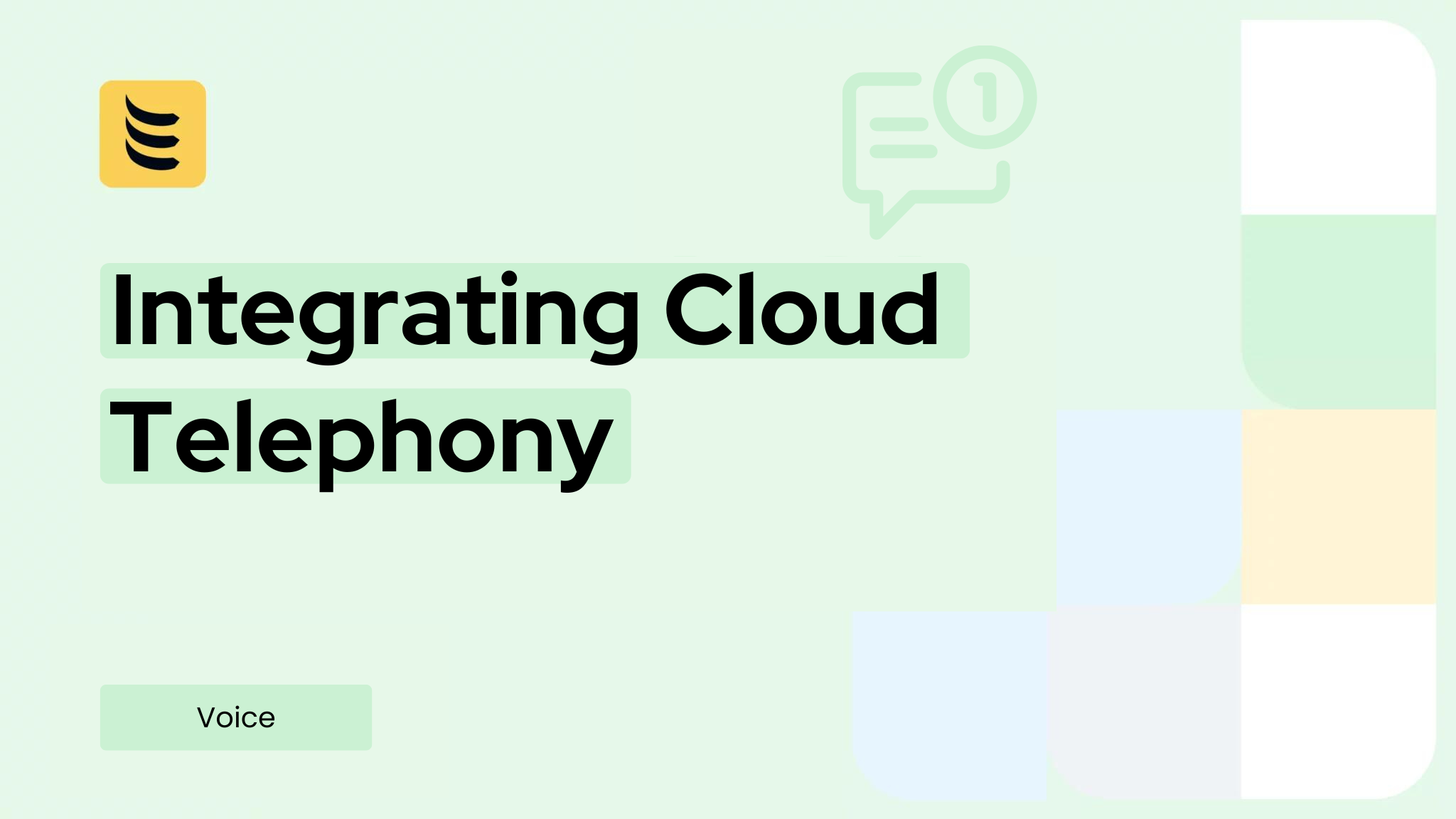Voice termination, also called call termination, is the process of routing a phone call from one provider to another until it reaches its destination. Typically routed through Voice over Internet Protocol (VoIP), it enables cost-effective international and long-distance communication compared to traditional telephone networks.
Internet-based telephone services are inexorably transforming the telecommunications industry. It’s easy to see why VoIP is popular as it offers a number of advantages for businesses. Chief among these are lower costs, particularly for businesses that need to make international calls on a regular basis.
There are other benefits too, including easy scalability to allow companies to expand their telephone systems quickly without the expense and lead times of installing more in-house equipment. This contrasts favorably with a conventional PABX.
There’s little doubt that VoIP is the future of telecommunications. BT is already committed to phasing out its traditional services in favor of a fully IP-based network over the next few years. For business phone users, the attractions of VoIp are already compelling. However, it’s important to understand how the market operates and some of the terminology involved in order to ensure that you’re going to get a good deal.
Wholesale voice termination is a crucial part of the telecommunications ecosystem. It involves the process of routing voice calls from one network to another, ensuring that calls can traverse various telecommunications networks efficiently. In this article, we will explore the intricacies of voice termination, how it operates, its benefits, and more, making it easier for businesses and service providers to understand this essential service.
How Does Voice Termination Work?
Voice termination involves several technical processes that allow voice communication to occur over different networks. At its core, it starts with a voice call placed by an end-user, which is then transmitted through a service provider’s infrastructure.
The call is routed through a series of switches and gateways which convert the voice signal into digital data packets. These packets traverse the internet or private networks to reach another service provider’s network. Finally, the destination network converts the digital data back into a voice signal, completing the call.
To facilitate this entire process, several protocols are used, including SIP (Session Initiation Protocol) and RTP (Real-time Transport Protocol). These protocols ensure that voice packets are sent and received in real time, maintaining the quality of the conversation.
Understanding the Routing Process
The routing of voice calls is managed by various factors, including the geographical location of the caller and receiver, designated carrier paths, and the service types chosen. Each carrier has a set of routes they’ve established to optimize call quality and minimize costs.
This routing system is also influenced by the demand for specific call types. For instance, a high volume of calls to a particular country may result in dedicated routes to that destination to ensure reliability and quality. Additionally, the use of least-cost routing (LCR) strategies allows service providers to select the most cost-effective path for each call, balancing economic efficiency with the need for quality. This dynamic adjustment to routing can also involve real-time analytics, where data about network congestion and performance is constantly monitored to make instantaneous routing decisions.
Quality of Service (QoS)
A critical aspect of voice termination is ensuring Quality of Service (QoS). This involves prioritizing voice traffic on the network to prevent packet loss, delays, and jitter, which can adversely affect call quality.
Service providers often implement various QoS mechanisms, such as bandwidth reservation and traffic shaping, to guarantee a consistent experience for end-users. Maintaining high QoS standards is vital to maintaining customer satisfaction and brand reputation. Moreover, advanced technologies such as VoIP (Voice over Internet Protocol) have introduced additional complexities in QoS management, requiring providers to continually innovate their strategies. For example, some providers utilize machine learning algorithms to predict traffic patterns and adjust resources dynamically, ensuring that voice calls receive the necessary bandwidth even during peak usage times. This proactive approach not only enhances the user experience but also helps in identifying potential issues before they impact service delivery.
Types of Voice Termination Services
Voice termination services can be categorized based on several factors, including the technology used and the type of clients served. Here are the primary categories:
- Traditional PSTN (Public Switched Telephone Network): This is the conventional telephone network that connects landlines and mobile phones.
- VoIP (Voice over Internet Protocol): This technology routes calls over the internet, offering significant cost savings for long-distance communications.
- SMS Termination: While primarily focused on voice, many providers also offer SMS termination, allowing businesses to send text messages across networks.
- A2P (Application-to-Person) Messaging: This is increasingly used for marketing and customer engagement, terminating calls and messages from applications to individual users.
Additional Considerations
When selecting a type of voice termination service, businesses must consider factors like coverage, cost, and technology infrastructure. Each service type presents its unique advantages and limitations, warranting a careful evaluation of operational needs and objectives.
Furthermore, the choice of voice termination service can also impact the quality of communication. For instance, while PSTN offers reliability and high-quality voice transmission, VoIP may introduce latency or jitter if not properly managed. Businesses should also assess the scalability of the service, especially if they anticipate growth or fluctuations in call volume. A flexible service that can accommodate changing needs without significant investment is often preferable.
Another critical aspect to consider is regulatory compliance, particularly for A2P messaging and international voice termination. Different countries have varying regulations regarding telecommunications, and non-compliance can lead to hefty fines or service interruptions. Therefore, it is essential for businesses to partner with providers who are knowledgeable about local laws and can ensure that all communications adhere to necessary guidelines, thus safeguarding their operations and reputation.
Key Benefits of Voice Termination
Implementing wholesale voice termination services offers numerous advantages for businesses. Below are some key benefits:
- Cost Efficiency: Wholesale voice termination can significantly reduce calling costs, especially for international calls.
- Scalability: Businesses can easily scale and adjust their voice services based on demand, whether increasing or decreasing capacity as needed.
- Improved Call Quality: With the right provider, businesses can ensure high-quality calls with minimized latency and interference.
- Access to Global Markets: Voice termination services can facilitate communication across borders, opening opportunities for global outreach.
Enhanced Customer Experience
Beyond cost savings, the ability to provide reliable communication helps businesses improve their overall customer experience. High-quality voice services foster trust and build long-lasting customer relationships.
Challenges in Voice Termination
Despite the benefits, businesses often encounter challenges in voice termination. Some of the key hurdles include:
- Regulatory Compliance: Navigating the complexities of telecommunications regulations can be daunting, especially for international communications.
- Fraud Risks: Voice termination fraud, such as SIM boxing, poses a significant risk that can lead to financial losses.
- Network Reliability: Dependence on multiple networks can sometimes lead to issues with reliability and service consistency.
Mitigating Challenges
To combat these challenges, businesses should conduct thorough due diligence when selecting providers, focusing on their reputation, regulatory knowledge, and security measures. Moreover, implementing monitoring tools can help detect unusual activity that may indicate fraud or service issues.
How to Choose a Reliable Voice Termination Provider
Choosing a reliable voice termination provider requires careful consideration of several factors. Here are key elements to evaluate:
- Quality of Service: Ensure they provide consistent call quality and reliability.
- Coverage: Check if they offer extensive routing to your target destinations.
- Cost Structure: Understand their pricing model and how it aligns with your budget.
- Customer Support: Reliable support can make a significant difference in troubleshooting and operational issues.
- Security Measures: Confirm that they have robust security protocols in place to mitigate fraud risks.
Testing Services
Many providers offer trial services or short-term contracts, allowing businesses to test their service quality before making a long-term commitment. This trial period can be beneficial in assessing call clarity, customer support responsiveness, and overall user experience.
Applications of Voice Termination in Business
Businesses utilize voice termination services in various applications, each serving unique purposes. Some of the most common scenarios include:
- Customer Service: Providing customer support through dedicated call centers enables businesses to resolve inquiries efficiently.
- Sales and Marketing: Telemarketing and lead generation rely heavily on reliable voice termination for effective outreach.
- Remote Work Solutions: As remote work instances rise, businesses leverage voice termination to maintain communication with distributed teams.
Industry-Specific Uses
Different industries also leverage voice termination to meet specific needs. For example, hospitality businesses use these services to manage reservations and inquiries effectively. In contrast, healthcare providers utilize reliable voice communications for patient consultations and telemedicine.
Voice Termination vs. Voice Origination
While voice termination is vital for connecting calls, it is important to differentiate it from voice origination. Voice origination refers to the process of initiating calls from an end-user’s device to the public switched telephone network.
The two processes are interconnected, as voice termination serves as the endpoint for calls initiated through voice origination. However, they require different kinds of infrastructure and management approaches.
Integrating Both Services
Businesses that require both services should ensure that their chosen provider can support seamless integration. This can simplify operations and enhance the overall user experience, allowing calls to flow smoothly from origination to termination without issues.
Future Trends in Voice Termination
The landscape of voice termination is continually evolving, with new technologies and trends shaping the future of communication. Some anticipated developments include:
- Increased Adoption of AI: Utilizing artificial intelligence can enhance call routing and increase overall efficiency in managing voice calls.
- 5G Integration: As 5G networks continue to roll out globally, they will transform voice termination by providing higher speeds and lower latency.
- Cloud-Based Solutions: More companies are moving to the cloud for their voice services, which allows for enhanced scalability and flexibility.
Conclusion
The future of voice termination holds immense potential for driving innovation in telecommunications. Businesses that stay informed about these trends and developments will be better positioned to optimize their voice services, catering effectively to an ever-evolving marketplace. Through careful selection of providers and leveraging the right technologies, companies can enhance their communication strategies and deliver exceptional service to their customers.
Get Wholesale Voice Termination With IDT Express
Get our quality-focused A-Z voice termination to meet your business needs. Over 70 countries serviced with our large and local networks.
Form succesfully sent ;)
Popularity drives competition
As VoIP has become more popular and looks set to ultimately replace more traditional switched telephone services, so the market has seen a greater degree of competition. Customers are able to shop around for providers offering the best rates.
At the tier 2 level it’s possible to start a wholesale VoIP termination business with a relatively small investment, so recent years have seen many new companies springing up. These businesses can sell services under their own brands and offer low prices due to minimal overheads.
From the service user’s point of view, this makes it important to look at the track record of a business. If your company relies heavily upon phone services then it may be more important to look for a provider with a strong track record in VoIP, such as IDT, rather than merely shaving a few extra pennies off your calling costs by signing up with an unknown start-up.
We cover 70+ countries and counting with our local, toll-free, and mobile virtual numbers.




